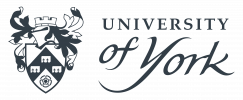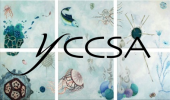© Pint of Science, 2024. All rights reserved.
How are we who we are? What is it about our interactions with others that define our sense of being, of being human? Tonight's speakers will navigate what it means to be human, in our capacity to feel emotions, and how we present our selves, and alter our behavior, based on cues from others. Join us for a pint as we question what it means to "be".
Angels or Demons? An archaeologist's view on what it means to be human
Penny Spikins
(Senior lecturer in archaeology, University of York)
Our popular image of the distant past is one where brutish human ancestors, club in hand, were prone to violence at the slightest provocation. Have we suppressed our violent natures through modern civilisation or is there another story about our ancestors? In this talk I'll look back to the earliest archaeological evidence to consider to what extent our earliest ancestors were 'angels' or 'demons'. We'll ask what evidence for care and compassion in the distant past means about being human, and why this matters when modern political crises can make us despair about the nature of humanity.
How interacting with others changes who we are
Andrew Euan MacFarlane
(Lecturer, University of York)
Research has shown that behaviours we feel to be our own can, in fact, be quite predictable. These behaviours can be affected by words, images, sounds and temperature, just to name a few. We're not talking about something so obvious as putting up an umbrella when it starts to drizzle - but rather what made you buy the green umbrella over the blue one? why did you decide to leave your house with your umbrella given that it wasn't even raining? We'll also touch on how speech can play a part in this behavioural soup mix - and look at some of the research I have conducted on this area.
Science and Development: Does Science Make Modern States?
Sabine Clarke
(Lecturer in Modern History, University of York)
Our sense of being modern often comes from the technologies we use. When we compare our state of development with that of other nations we do this by looking at differences in industry, IT, telecommunications or medical technologies. But was it science and technology that brought us to our current state of development? What can an examination of the past tell us about the role of scientific research, for example, in building modern states?
Map data © OpenStreetMap contributors.

